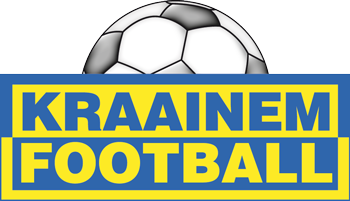Round of croque-monsieur for the kids
At the cafeterias of sporting clubs, one sits down with friends and has fun! At Kraainem, it is Sandra who treats the guests. This evening, she’s prepared croque-monsieur, the kids’ favourite meal. Serving up a healthy dose of ketchup, she says: “Let if flow!”.
« I’m not very fond of saying “the refugees”.. I always refer to them as “my kids””, she explains as she impatiently waits to see which one of them will be there today. On Wednesday afternoons, it is children from the Rixensart centre who are welcomed at the club. Every Tuesday and Thursday evening, the young men staying at the Fedasil centre in Woluwé-Saint-Pierre join the Under 21’s training session. Some have already come over, others see the club for the first time and then there are those which Sandra won’t see again, as they have already changed places of residency. Sandra thinks about them quite often, always wondering what they’re becoming.
Only think about playing football, having a conversation and having fun.
The thing is that these kids are still very young but with a “far too heavy of a past” already. Sandra had a vague idea of what the migrants had to endure but directly talking with them about it is totally different.. “Some of them show me the distance they’ve travelled on their phones. When you have to leave without being able to say goodbye to your mother, when someone takes your money, when someone physically beats you, then having to cross the sea on a small boat… Personally, I wouldn’t be able to trust anyone after that. They are very strong young people” she explains.
Every evening, Sandra is there to feed the guests. Her spontaneity, human warmth and easy-going nature manage to break down all barriers. She always finds the right words to break the ice and manages to get even the shyest of people to share a laugh with her. “I would like that, during every evening at the club, even if it only is for a couple of hours these kids couldget a chance to escape from their daily hardships. They should only think about one thing: play football, have a conversation andhave fun”.
One day, Sandra received a drawing from one of the children who come on Wednesdays: “I’m pictured as an African mother, busy making some soup in a cauldron”. She thinks about the mothers from “over there” with a lot of emotion. In a certain way, she feels connected to them: “If my child arrived alone in a foreign country, I’d be happy if he could meet people that welcome him and help build his life back up”.







